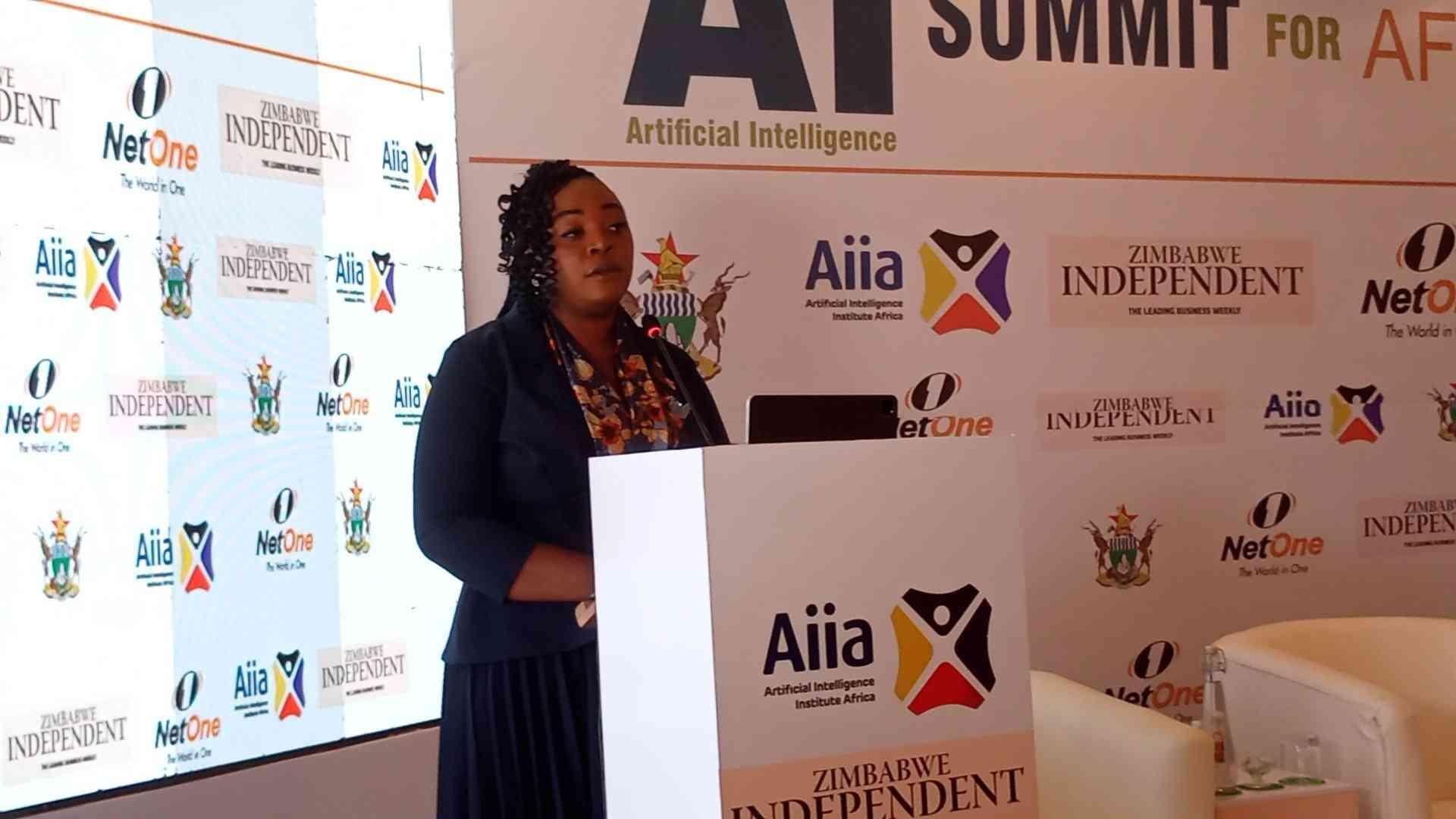Africa-Press – Zimbabwe. VICTORIA FALLS – Zimbabwe’s Information Communication Technology, Postal and Courier Services minister, Tatenda Mavetera, officially opened the Artificial Intelligence for Africa Summit today with a bold call to action that Africa must not merely adopt AI, but must shape its future.
“We are not here to debate whether AI will shape our future. No. We are here to ensure that Africa itself shapes AI for our future — a future rooted in the philosophy of Ubuntu: I am because we are,” Mavetera told delegates gathered in Victoria Falls for the continent-wide summit.
Describing AI as a “transformative force as significant as the invention of the printing press or the harnessing of electricity,” Mavetera said the time had come for Africa to take ownership of the digital revolution and drive innovation that meets the unique needs of its people.
“Artificial Intelligence is like the mighty Zambezi River,” she said.
“It begins as a small stream of ideas, but with the right conditions, it grows into an unstoppable current, cutting through barriers and reshaping the land forever.
“Indeed, Africa’s moment has arrived.”
Mavetera said it was imperative that AI remain human-centred and ethically grounded, aligning with the United Nations Sustainable Development Goals (SDGs) to tackle pressing continental challenges such as climate change, poverty, access to healthcare, education, and digital equity.
Mavetera warned of the dangers of digital dependency and “algorithmic neo-colonialism” if African nations do not develop local capacity and tailor AI systems to reflect their languages, cultures, and socio-economic realities.
“An AI built on foreign data will not understand the tones of our communities or the richness of indigenous languages like Shona, Ndebele or Tonga,” she said.
“We must become creators—not just consumers—of global AI solutions.”
She outlined Zimbabwe’s multi-pronged strategy for AI integration, including investments in infrastructure, data governance, education and policy to include the expansion of the High-Performance Computing Centre, the drive to raise the National Data Centre to tier-4 capability, the “1.5 million coders” programme to promote digital skills nationwide, an AI training initiative for policymakers in partnership with AI Institute Africa and the upcoming launch of Zimbabwe’s National AI Strategy in October.
“This summit must evolve into a continental AI think tank,” Mavetera said.
“Together, we must transform vision into actionable frameworks that ensure every village is connected, every child is educated, and every youth has opportunity.”
Referencing examples across the continent—from AI-powered agriculture in Kenya to wildlife conservation in Botswana—she said the challenge now was not proof of concept, but the scale.
“If we succeed, AI will not take Africa’s jobs. It will create Africa’s opportunities,” Mavetera said.
“Our goal is not just digital transformation, but digital sovereignty. This is the Africa we are building—an Africa of unity, dignity, and shared prosperity.”
The AI summit runs until tomorrow, convening delegates from governments, academia, industry and civil society to shape a unified African AI agenda.
For More News And Analysis About Zimbabwe Follow Africa-Press






